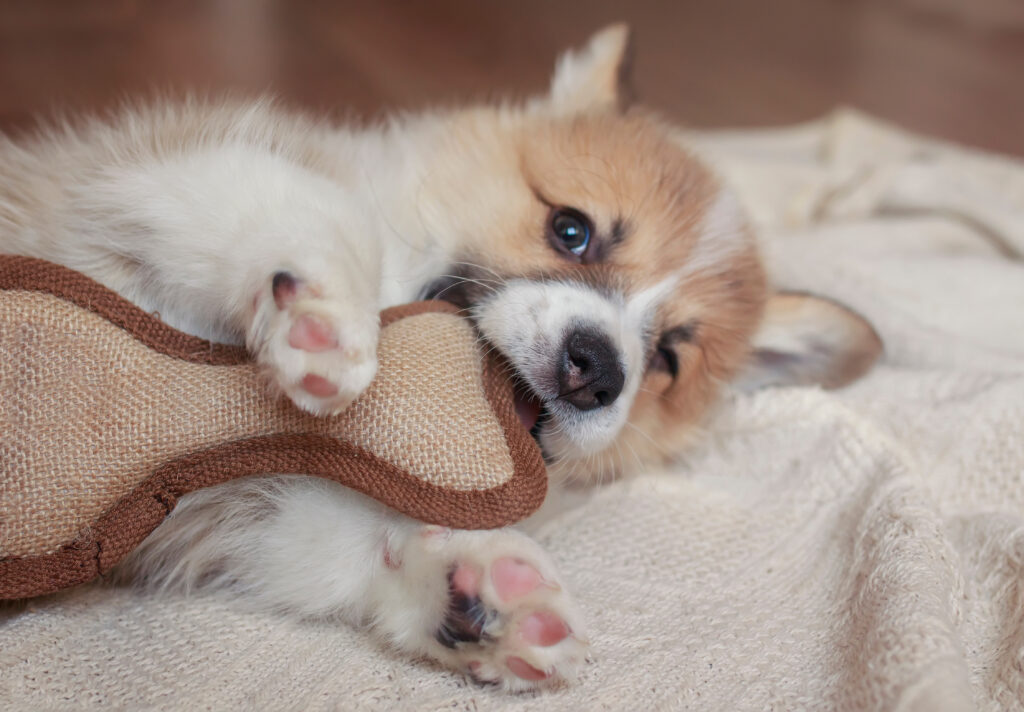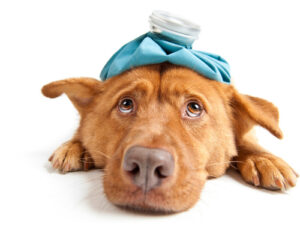If you’re a pet owner in Broomfield, CO, you might be curious about the various stages of your puppy’s development, especially when it comes to dental health. A common question we hear at Broomfield Veterinary Hospital is: Do puppies lose their teeth? The answer is a resounding yes! In this blog, we’ll explore the process of puppy teething, what to expect, and how you can support your furry pal during this phase. If you have concerns or questions, call us at (303) 466-1764 for expert advice or to schedule an appointment for your canine companion.
Understanding Puppy Teething
Puppy teething is a natural and important part of a dog’s growth. Similar to human babies, puppies are born without teeth. Around three to six weeks of age, their first set of teeth, known as “milk teeth” or “deciduous teeth,” begin to appear. By the time they are six to eight weeks old, most puppies will have a full set of these temporary teeth. However, these are not their permanent teeth. Starting at around four months of age, puppies begin to lose these milk teeth, which are replaced by their adult teeth. This process can be uncomfortable for your puppy, and you might notice them chewing more during this period.
Signs of Teething in Puppies
As a pet owner, recognizing the signs of teething is key to understanding your puppy’s behavior. Common signs include:
- Increased chewing or biting
- Drooling
- Slight bleeding from the gums
- Mild decrease in appetite.
You might also find tiny teeth around your home as they fall out. It’s important to monitor these symptoms to ensure they align with normal teething patterns. If you notice anything unusual or concerning, such as excessive discomfort or changes in your puppy’s eating habits, it’s best to contact Broomfield Veterinary Hospital for guidance.
Supporting Your Puppy Through Teething
Helping your puppy through the teething process can make the experience more comfortable and stress-free for them. Here are actionable steps you can take as a pet owner:
Provide Appropriate Chew Toys
Choose a variety of chew toys to keep your puppy engaged and relieve their urge to gnaw. Soft rubber toys, dental chew toys, and freezable teething toys are great options. Each type serves a different purpose: soft rubber toys are gentle on sore gums, dental chews can help remove plaque, and cold toys can soothe inflammation. Rotate these toys to keep your puppy interested.
Establish a Routine
The key is consistency. Offer these toys to your puppy regularly, especially when they seem inclined to chew on inappropriate items like furniture or shoes. This not only helps with teething discomfort but also aids in teaching them what is appropriate to chew.
Gentle Gum Massage
Using a clean finger, gently rub your puppy’s gums. This can provide relief from the pressure and discomfort of teething. Be gentle and cautious, as their gums might be sensitive.
Introduce Puppy-Safe Dental Products
Start introducing dental care routines early. Use a soft-bristled toothbrush and puppy-formulated toothpaste. Begin by letting your puppy taste the toothpaste and gradually work up to brushing a few teeth at a time. Never use human toothpaste, as it can be harmful to dogs.
Monitor Their Chewing Habits
Keep an eye on what your puppy chews and ensure it’s safe. Avoid hard objects that could crack their teeth or small items that could be a choking hazard. Regularly inspect their toys for signs of wear and replace them as needed.
Offer Healthy Chewable Snacks
Some natural snacks can also help with teething. For instance, carrots (frozen or fresh) can be a healthy option. Always supervise your puppy while they’re chewing to prevent choking.
Stay Patient and Positive
Teething can be a trying time for both puppies and owners. Your puppy might be more irritable or anxious during this period. Stay patient, offer comfort, and continue with positive reinforcement training.
Regularly Check Their Teeth and Gums
Regularly inspect your puppy’s mouth for any signs of trouble, like broken teeth, excessive bleeding, or red and swollen gums. If you notice anything concerning, it’s important to consult with your veterinarian.
Consult with Your Vet
If you’re unsure about any aspect of your puppy’s dental care or if they seem to be in a lot of discomfort, don’t hesitate to reach out to Broomfield Veterinary Hospital. Our team can offer specific advice tailored to your puppy’s needs.
Remember, the teething phase is temporary, but the habits and care you establish during this time can have lasting effects on your puppy’s dental health. By taking these steps, you’ll not only ease their discomfort but also lay the foundation for a lifetime of healthy chewing habits.
Puppy Dental Care and Regular Check-Ups
Regular vet dental check-ups are vital for your puppy’s oral health. These appointments allow us to monitor the progress of their teething and identify any potential issues early on. During a dental check-up, we can also provide advice on ongoing care and dental hygiene practices. Early dental care can prevent many problems in the future and we encourage you to schedule regular dental check-ups for your puppy at Broomfield Veterinary Hospital, where our experienced team is dedicated to ensuring the well-being of your growing pet.
Partner with Us for Your Puppy’s Health Journey
At Broomfield Veterinary Hospital, we understand that your puppy’s teething phase is just one part of their growth and development. We’re here to support you and your puppy every step of the way, ensuring they grow into a healthy and happy adult dog. Remember, regular dental check-ups and proper care during the teething phase are key to your puppy’s overall health. If you have any questions or need to schedule an appointment, call us at 303-466-1764. Trust us to be your partner in your puppy’s health journey.





